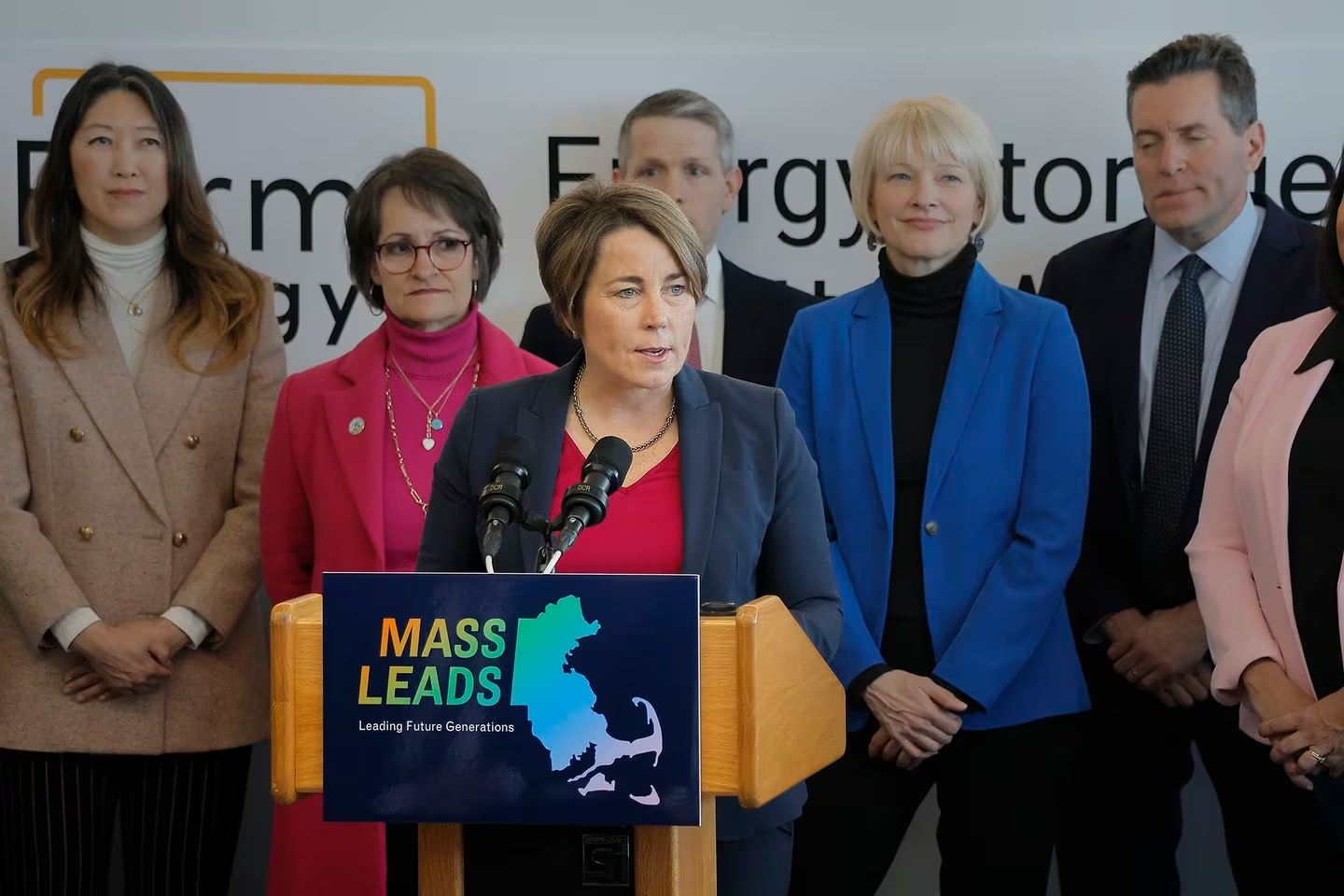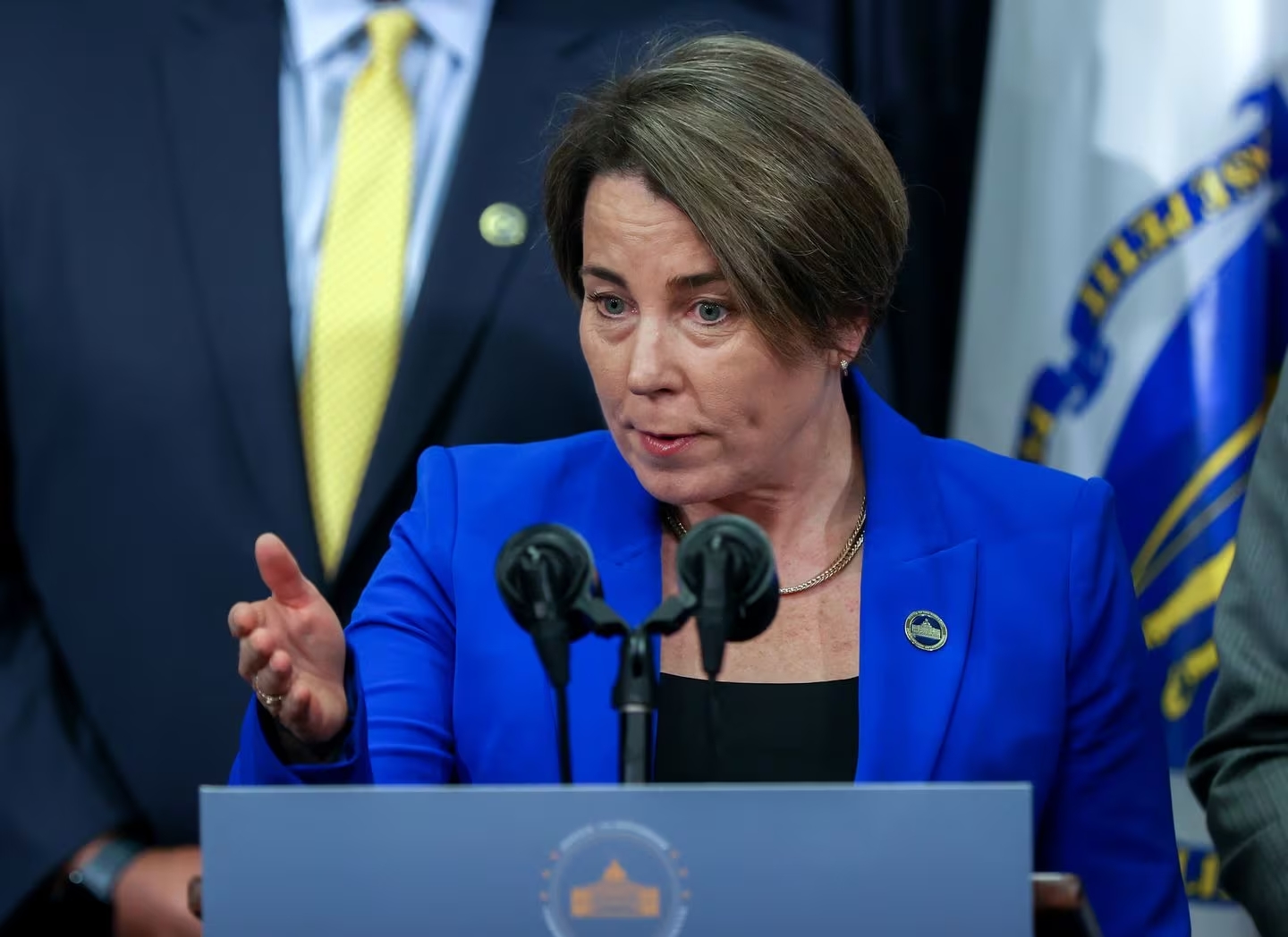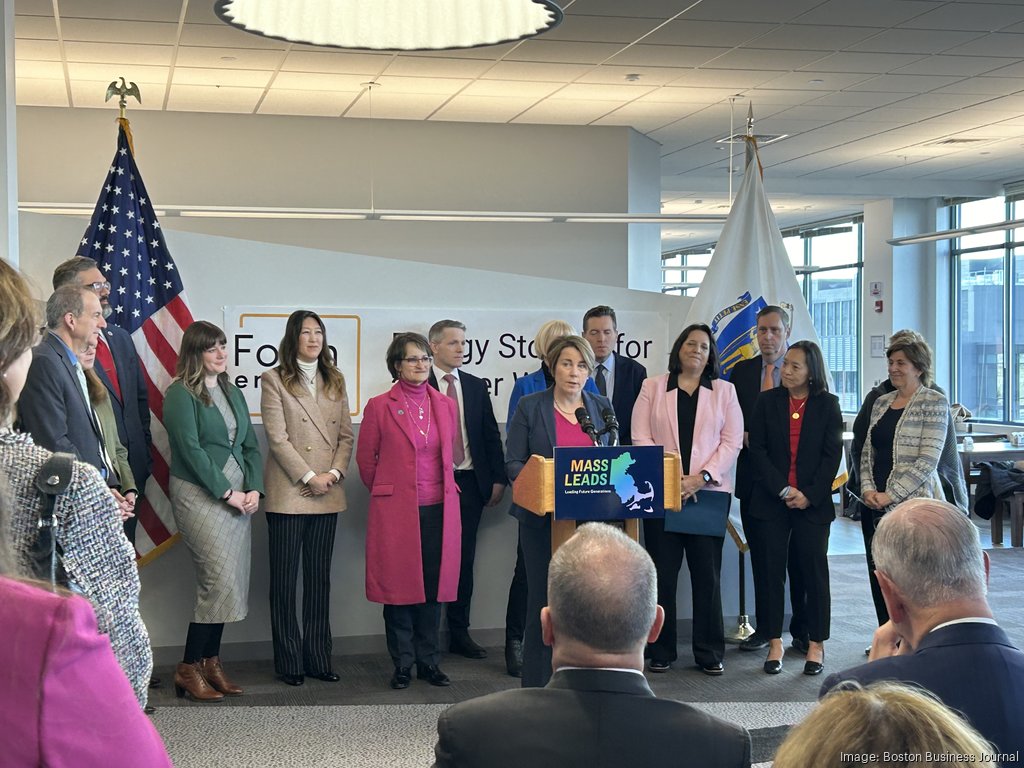Making Massachusetts the Global Hub for Climatetech
Developing a burgeoning industry through the 2024 Economic Development Package
Our transition to a clean energy economy presents one of the biggest opportunities Massachusetts has ever seen. This year, we have the chance to do for climatetech what we did for biotech fifteen years ago.
Developed every two years, Massachusetts’ economic development bond package aims to stimulate the Commonwealth’s economy and spur our competitive growth. This legislative session presents a first-of-its-kind opportunity: by integrating funding for climatetech and clean energy into the bond, Massachusetts can boost our economy and accelerate our transition to a healthy, prosperous net-zero future.
Meeting the Commonwealth’s climate and clean energy goals requires economy-wide investment; however, organizations driving our state’s clean energy infrastructure and climatetech innovation have been historically underfunded. This has caused Massachusetts to lag behind competitors such as New York and California. By investing in climatetech, Massachusetts can attract and retain entrepreneurs and startups with game-changing ideas, as well as build our skilled workforce to bring those ideas to life. This is a watershed opportunity to solidify Massachusetts as the national and global leader in climatetech.
The Environmental League of Massachusetts and our partners are advocating for at least a $1 billion climatetech investment over ten years in the 2024 economic development Bond. Our three key priorities will expedite our fight against climate change and advance clean energy: investing robust and sustained funding for the Massachusetts Clean Energy Center (MassCEC), building a skilled and inclusive green workforce, and attracting, growing and retaining climatetech businesses.

Invest robust and sustained funding in MassCEC:
MassCEC should be the hub for this burgeoning industry, and it is well-positioned to translate increased funding into transformative growth. MassCEC’s current funding limits its ability to respond to a rapidly changing industry and compete with similar agencies in other states. With robust funding and consistent inclusion in capital plans, MassCEC will be able to expand and strengthen our clean energy industry.
Build a skilled and inclusive green workforce:
Our vocational schools, community colleges, and universities are already educating the next generation of climate tech workers, and we need to significantly grow these programs. This will create high-quality jobs and a workforce ready to innovate and utilize climatetech to decarbonize our economy. Our net-zero transition could be a transformative wealth-building opportunity for environmental justice communities if we emphasize training opportunities in areas disproportionally burdened by climate change’s impacts. By prioritizing outreach to marginalized communities, we can build the workforce needed to facilitate this new growth and create high-quality, well–paying jobs.
Attract, grow, and retain climatetech businesses:
Our state already has most of the critical pieces necessary to lead the world in climatetech—we are a home to innovation, leading educational institutions, and diverse and talented residents. We need capital investment and tax incentives to seize this unique opportunity to leverage our advantages and lower barriers to growth. Capital investment should support infrastructure, research, and demonstration projects. They must also be designed to drive equity and economic inclusion, both in where we focus geographically and in which communities benefit from new businesses.

Doing for Climatetech What We Did for Biotech:
Right now, climatetech accounts for about the same number of venture capital dollars as life sciences did 15 years ago. As a result of our state’s forward-thinking investments, now about 32% of all life science venture capital dollars worldwide come to Massachusetts. Additionally, our state receives 15% of the world’s drug pipeline here in Massachusetts and is third in the nation for all National Institutes of Health (NIH) dollars every year.
With over 100,000 Massachusetts residents already working in clean energy – 3% of our workforce – just imagine what the industry will look like in 2040 if we invest now.

What this Means for Massachusetts
Our Commonwealth has much of the infrastructure and innovation needed to become the leading state for clean energy and climatetech . With additional funding, we can simultaneously create thousands of new, well-paying jobs across Massachusetts while expediting our transition to a net-zero economy. Benefits include:
- Diversifying our state’s sectors
- Driving statewide workforce opportunities with benefits, job protections, and family-supporting salaries
- Promoting the skilled trades and the institutions to train our growing workforce
- Delivering economic benefits to environmental justice communities
- Boosting pilot programs in the climatetech and clean energy industries
- Supporting state-of-the-art testing and research programs
- Driving down the costs of decarbonization and helping Massachusetts reach net-zero emissions
- Improving public health and quality of life
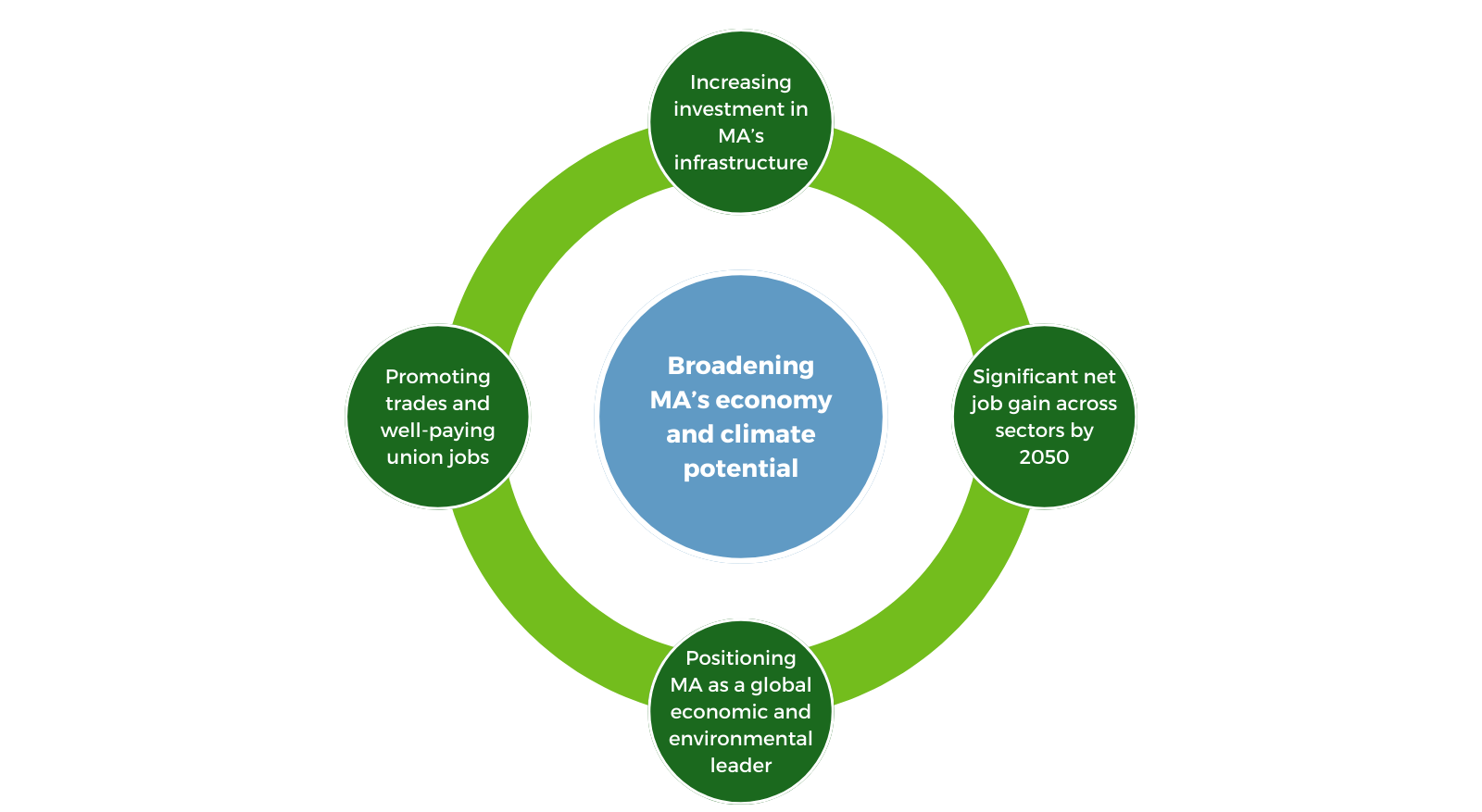
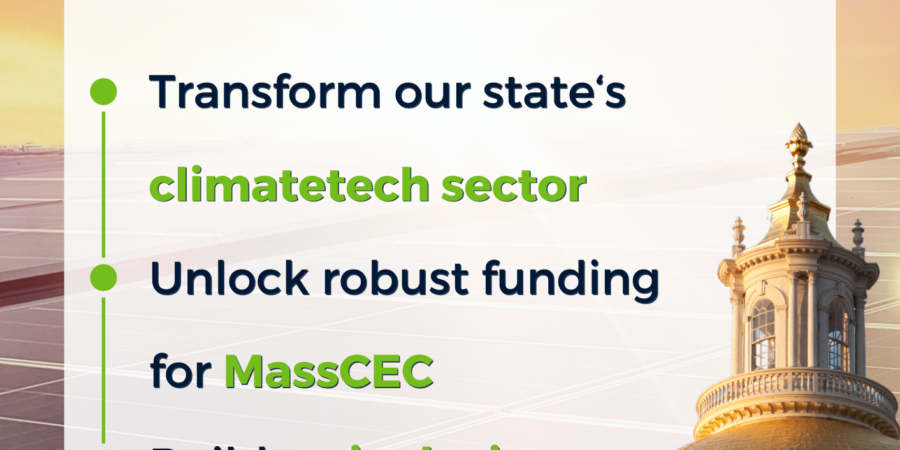
Climatetech Investments Secured!
On November 20, 2024, Governor Maura Healey signed the economic development bill into law, including significant climatetech investments.
This ten-year initiative will expand our workforce, drive competitive growth, and catalyze the development of technology to address our climate crisis.

